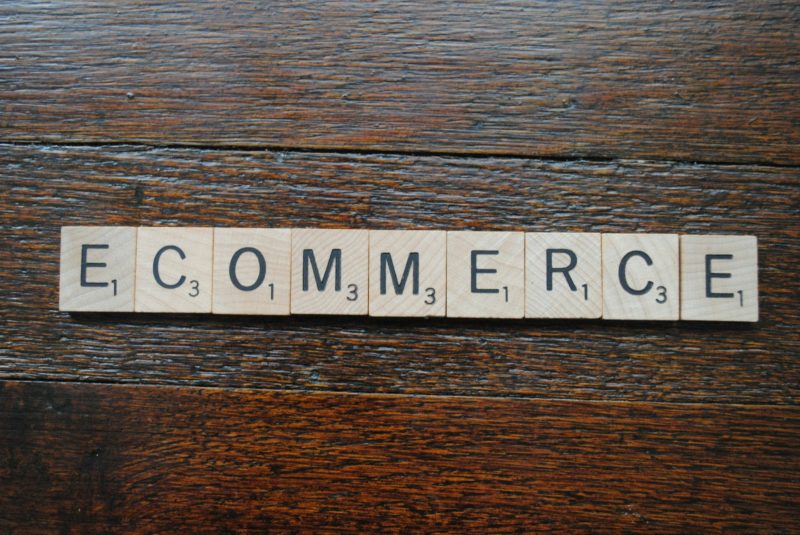E-commerce Tips for Selling Industrial Equipment Online

When I first started selling industrial equipment online, it was very overwhelming. Looking back, I often think about how stepping into this venture, lacking any real technical skills, helped me focus on the essentials. Over time, I’ve identif ied some straightforward and effective strategies that industrial equipment vendors, like us, can adopt to enhance our presence in the online marketplace.
Identify Your Niche
The online market of industrial equipment is vast, and carving out your own space is the initial step to creating a successful e-commerce platform. When I began, I was tempted to offer everything imaginable. However, focusing on a few specialized categories—such as construction safety gear—allowed me to identify my customer base and cater to their specific needs much better. A narrowed focus can not only foster better customer relationships but also boost product quality since efforts can be concentrated on innovating and improving these niche items.
In addition to narrowing focus, aligning with industry trends can greatly enhance your niche offerings. I found it beneficial to attend trade shows and conferences related to my chosen niche. It provided invaluable insights into emerging demands and expectations from both clients and competitors. This proactive approach helped in refining my offerings, often leading to adopting new technologies and processes that resonated well with my audience.
A crucial aspect of enhancing your niche’s outreach involves optimizing your online presence. One effective method is to employ strategic SEO practices. For a deeper understanding of such strategies, you can learn more about industry SEO, exploring how dedicated SEO services can significantly boost your visibility in this competitive market.
It’s also worth looking into potential partnerships within your niche, as collaborations can elevate your brand’s credibility. By teaming up with complementary businesses—such as a parts supplier or repair service—you can expand your product offering and market your brand cohesively. This approach opens avenues for cross-promotion, reaching a wider audience while maintaining focus on specialized products.
Study Your Competition
Competition is no villain; it’s a valuable teacher. Observing your competitors can give you insights into their strengths and weaknesses. In my case, analyzing other vendors in my niche helped me identify gaps I could fill, thus setting me apart. Reviewing their pricing, customer reviews, and website functionality gave me an edge to improvise and perform better. Learn to study competitors without envying them, always striving to be an improved version of your own business.
Establishing a feedback loop is another vital tactic in staying ahead of your competition. By actively soliciting and acting on feedback from customers, you’re likely to uncover areas where competitors may fall short. Consider surveys, polls, and feedback forms to capture genuine customer impressions, which can enhance your service based on real-world needs and ensure continuous improvement over time.
An often overlooked strategy is creating educational content that positions your business as a thought leader in your specialization. By sharing blogs, webinars, and video tutorials with insights about the industry, you provide value that keeps your audience engaged and informed. This content also enhances your visibility on search engines, taking advantage of SEO techniques that competitors might not be leveraging efficiently.
Prioritize User-Friendly Experience
The first impression a customer gets when visiting your site can often be the deciding factor in a purchase. A streamlined, easy-to-navigate site can make a world of difference in customer retention. Investing in a simple and clear layout was one of the best decisions I ever made. No one clicks through a site filled with convoluted categories and sluggish pages when they can choose convenience. Prioritize faster load times and ensure a seamless transaction process to enhance the user experience.
Remember that user interface design isn’t just about aesthetics; practical functionality should always be at the forefront. Tools like chatbots providing real-time assistance, intuitive search features, and detailed product descriptions can dramatically improve the overall shopping experience. In my experience, incorporating these elements wasn’t just about keeping up an appearance—it significantly increased sales completion rates and reduced customer drop-off.
Accessibility should play a key role in your user-friendly strategy. Make sure your website caters to individuals with disabilities by incorporating features such as screen reader compatibility, alternative text for images, and keyboard navigation options. Inclusivity broadens your customer base and demonstrates a commitment to serving all members of your community effectively, creating a lasting positive impact.
Invest in Reliable Customer Support
In the world of industrial equipment, questions and concerns often arise, and timely support can make or break your e-commerce business. Providing responsive, respectful, and knowledgeable customer support has always been my top priority. Equipping your team with the right training not only resolves issues quickly but also strengthens the trust customers have in you. When customers know they can rely on your support, they’re more likely to return and recommend your services.
Leverage Visual Storytelling
Let’s face it, industrial equipment isn’t the most glamorous of products. However, through clear, high-quality images and educational videos, you can tell your product’s story and highlight its value in a captivating manner. By adopting visual storytelling early on, I noticed an increase in customer engagement and website visits. Don’t underestimate the power of visuals—they can be the difference between a passerby and a repeat customer.
Build Strong Supplier Relationships
Finally, realize that your suppliers are your allies in ensuring a steady supply of inventory. Cultivate these relationships through clear communication, reliable payments, and mutual respect. In my experience, transparent dealings with suppliers have led to better pricing, preferred stock access, and collaborative marketing opportunities. Remember, goodwill travels in a full circle, positively impacting inventory consistency and customer satisfaction.
Embarking on an online venture for industrial equipment isn’t an easy feat, but with focused strategies in place, you can genuinely stand out and thrive. These lessons, gleaned from firsthand experience, point towards harmonious growth and sustainable success. The key is continuously refining your approach and adapting to feedback, nurturing your business from both the inside and the outside.
Would you like to receive similar articles by email?





